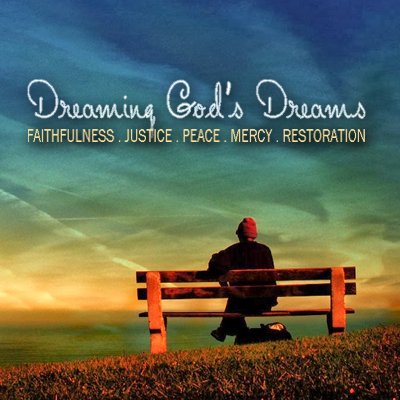___________________
In her book, “Inspired”, the late Rachel Held Evans describes her earliest memories of Jesus. She, like many of us, learned to pray around the dinner table. “Thank you Jesus for my mommy and daddy, my sister and my food.” “The first thing I knew about Jesus,” she says, “ is that he was responsible for the existence of my parents, my sister, me, and my food. That seemed like good enough news for me.”
When asked as a teenager to share how she “came to Jesus,” she responded with confusion. There had never been a time in her life when she did not know Jesus, but she never “came to him.” Rather, Jesus had always come to her. Jesus had simply “always been there.”
We spend a lot of time and energy in churches trying to figure out the latest and greatest strategies to get more members and more money in the offering plate. On the whole, the church has become quite proficient at mass producing Vacation Bible Schools, Community Meals, polished worship services, and countless other programs and events in hopes to “draw people in.” We try hard to be “seeker sensitive.” There’s only one problem. There are fewer and fewer “seekers” to be sensitive too. People are not looking for a church. They have no need for church, no matter how impressive it’s programs and ministries, or at least that’s the general perception for so many valid reasons.
Somewhere along the way, in our desperation to “get back to the good old days” when church stood at the center of our community, we have lost our ability to introduce people to what they really need… the Good News of Jesus. Yes, people may meet Jesus in church, but more often than not, Jesus did not meet people in the synagogues or at the temple. He met them in the marketplace, at their jobs, in their homes, on the streets, in the leper colony, among the sick, at funerals, at weddings and parties and feasts.
What if the church itself has become our idol? Just like the golden calf, church has come to function like a mediator between us and God so we don’t have to climb the mountain in the cloud of thunder and lightning where God’s Holy Presence may consume us. Instead, we are content to sit at the base of the mountain saying, “This church is the god who brought you out of Egypt.” So long as we are in the church, we feel comfortable and safe. We have “come to Jesus” by building walls between us and the rest of the world. We want to leave each Sunday morning feeling good about ourselves, having been encouraged and inspired in worship, but not challenged or convicted. We want just enough of “Jesus” to fill up our Spiritual gas tank for the week, but we are not overly comfortable with the thought that he might just walk out the door with us. Like the imaginary ghosts in Disney’s Haunted Mansion, Jesus may just follow you home, or to the restaurant or the bar, or to work, or anywhere else you may go.
In John 1:46, Nathaniel wonders, “Can anything good come from Nazareth?” In truth, there are many people in our world to day who might ask us, “Can anything good come from the church?”
Philip did not reply by inviting Nathaniel to Nazareth. He didn’t talk about how great the town was, about all the hidden gems there that nobody noticed. He didn’t tell him about all the great meals and fellowship opportunities or the amazing entertainment that was available. Nazareth was not the point. Philip didn’t need to defend the goodness of Nazareth. He wanted Nathaniel to meet Jesus.
What would it look like if we stopped trying to defend and promote our churches and instead just invited people to meet Jesus? They may come to your church or they may not, but in the end, attending a service or an event at church is not the point. The Good News is not that the church came into the world. The Good News is that God came into the world, wrapped in flesh, to dwell among us.
When we invite people to “Come and see,”, what exactly are we inviting them to? Do we want them to come see our beautiful sanctuary, our inspiring choir, our brilliant Sunday school teacher, our new preacher, or our favorite potluck recipes? Or might we simply invite them to Jesus.
“Can anything good come out of church?”
I don’t know. God can make beautiful things out of the dust, so surely he can bring something good out of Nazareth or the church. But that’s not the point. It’s not about Nazareth. It’s not about the church.
It’s about Jesus. Come and see him for yourself. Come and see the God who has stepped out of heaven to find you.
Come and see.





